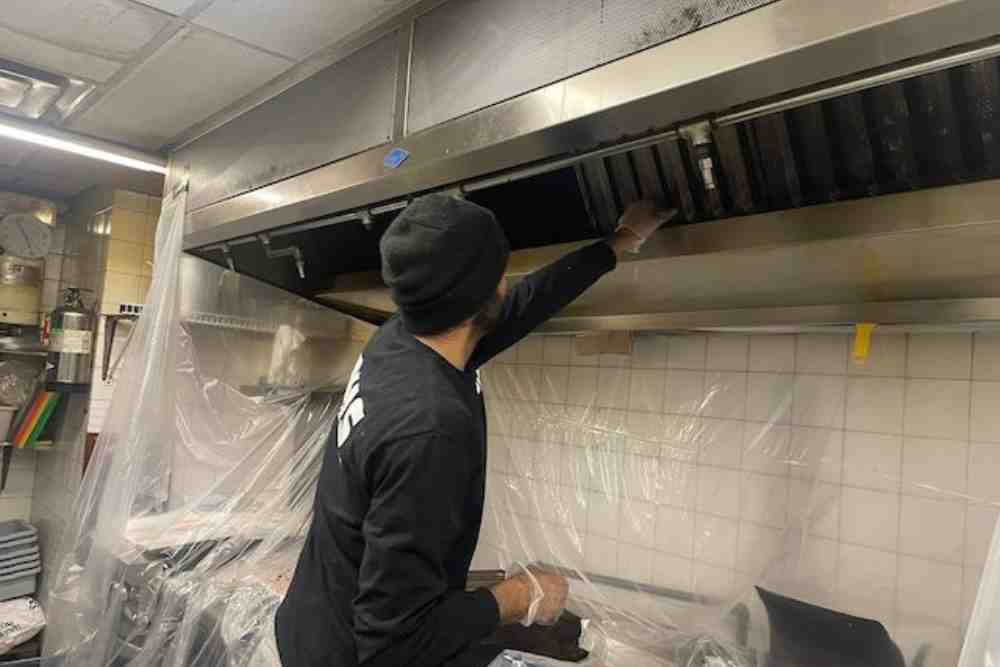Table of Contents
- Guidelines for Selecting a Reliable Hood Cleaning Company
- The Importance of Hood Cleaning
- Guidelines for Selecting a Reliable Hood Cleaning Company
- 1. Certification and Compliance
- 2. Experience and Reputation
- 3. Insurance Coverage
- 4. Cleaning Process and Equipment
- 5. Pricing and Contracts
- Frequently Asked Questions
- 1. How often should I have my hood and exhaust system cleaned?
- 2. Can I clean the hood and exhaust system myself?
- 3. How long does the hood cleaning process take?
- 4. What are the consequences of neglecting hood cleaning?
- 5. How can I maintain the cleanliness of my hood and exhaust system between professional cleanings?
- Summary
Guidelines for Selecting a Reliable Hood Cleaning Company

When it comes to maintaining a safe and clean kitchen environment, one of the most crucial tasks is ensuring that the hood and exhaust system are regularly cleaned. A clean hood and exhaust system not only improve the efficiency of your kitchen but also reduce the risk of fire hazards. However, finding a reliable hood cleaning company can be a daunting task, considering the numerous options available in the market. In this article, we will provide you with guidelines to help you select a reliable hood cleaning company that meets your specific needs.
The Importance of Hood Cleaning
Before diving into the guidelines for selecting a reliable hood cleaning company, it is essential to understand the importance of regular hood cleaning. The hood and exhaust system in a commercial kitchen play a vital role in removing smoke, grease, and other airborne contaminants. Over time, these contaminants accumulate in the hood and exhaust system, posing a significant fire hazard. According to the National Fire Protection Association (NFPA), failure to clean the hood and exhaust system is the leading cause of fires in commercial kitchens.
Regular hood cleaning not only reduces the risk of fire but also improves the overall air quality in the kitchen. A clean hood and exhaust system ensure that the kitchen staff and customers are not exposed to harmful fumes and odors. Additionally, a clean hood and exhaust system improve the efficiency of the ventilation system, reducing energy consumption and prolonging the lifespan of the equipment.
Guidelines for Selecting a Reliable Hood Cleaning Company
1. Certification and Compliance
When selecting a hood cleaning company, it is crucial to ensure that they are certified and compliant with industry standards and regulations. Look for companies that are certified by reputable organizations such as the International Kitchen Exhaust Cleaning Association (IKECA) or the National Air Duct Cleaners Association (NADCA). Certification ensures that the company follows best practices and has the necessary knowledge and expertise to perform hood cleaning safely and effectively.
Additionally, check if the company complies with local fire and safety codes. A reliable hood cleaning company should be familiar with the specific regulations in your area and adhere to them during the cleaning process. Compliance with these codes ensures that the cleaning is done thoroughly and reduces the risk of fire hazards.
2. Experience and Reputation
Experience is a crucial factor when selecting a hood cleaning company. Look for companies that have been in the industry for several years and have a proven track record of providing high-quality services. An experienced company is more likely to have encountered various hood cleaning challenges and developed effective solutions.
Research the reputation of the company by reading customer reviews and testimonials. A reliable hood cleaning company should have positive reviews and a good reputation within the industry. You can also ask for references from the company and contact their previous clients to inquire about their experience with the company’s services.
3. Insurance Coverage
Ensure that the hood cleaning company you choose has adequate insurance coverage. Cleaning hoods and exhaust systems involve working with flammable materials and at heights, which can pose risks to both the workers and your property. A reliable hood cleaning company should have liability insurance and workers’ compensation coverage to protect against any accidents or damages that may occur during the cleaning process.
4. Cleaning Process and Equipment
Ask the hood cleaning company about their cleaning process and the equipment they use. A reliable company should follow a comprehensive cleaning process that includes cleaning the hood, exhaust system, filters, and fans. They should also use professional-grade equipment and tools to ensure thorough cleaning.
Additionally, inquire about the cleaning products they use. The cleaning products should be safe, effective, and environmentally friendly. Avoid companies that use harsh chemicals that can damage your equipment or leave behind toxic residues.
5. Pricing and Contracts
Obtain detailed pricing information from the hood cleaning company before making a decision. The pricing should be transparent and include all the services provided. Be cautious of companies that offer significantly lower prices than their competitors, as they may compromise on the quality of their services.
Ask the company if they offer any service contracts. Service contracts ensure regular and scheduled cleaning of your hood and exhaust system, reducing the risk of neglecting maintenance. Contracts also provide peace of mind, as you can rely on the company to perform the necessary cleaning tasks without having to constantly monitor and schedule appointments.
For professional hood cleaning services in Ontario, visit Ontario Hood Cleaning.
Frequently Asked Questions

1. How often should I have my hood and exhaust system cleaned?
The frequency of hood and exhaust system cleaning depends on the type of cooking you do and the volume of cooking. As a general guideline, it is recommended to have a professional hood cleaning every three to six months. However, certain factors such as heavy grease production or high-volume cooking may require more frequent cleaning.
2. Can I clean the hood and exhaust system myself?
While it is possible to perform basic cleaning of the hood and exhaust system yourself, professional cleaning is highly recommended. Professional hood cleaning companies have the necessary expertise, equipment, and cleaning agents to ensure thorough and safe cleaning. They can also identify and address any potential issues or deficiencies in the system.
3. How long does the hood cleaning process take?
The duration of the hood cleaning process depends on the size and complexity of the system. On average, a professional hood cleaning can take anywhere from two to six hours. However, larger systems or systems with heavy grease buildup may require more time.
4. What are the consequences of neglecting hood cleaning?
Neglecting hood cleaning can have severe consequences, including increased risk of fire, reduced air quality, and decreased efficiency of the ventilation system. Accumulated grease and debris in the hood and exhaust system can ignite easily, leading to a potentially devastating fire. Additionally, neglected hood cleaning can result in foul odors, smoke, and harmful fumes in the kitchen, affecting the health and comfort of the staff and customers.
5. How can I maintain the cleanliness of my hood and exhaust system between professional cleanings?
To maintain the cleanliness of your hood and exhaust system between professional cleanings, it is essential to perform regular maintenance tasks. This includes wiping down the hood surfaces, cleaning the grease filters, and ensuring that the exhaust fans are functioning properly. Regular maintenance helps prevent excessive grease buildup and prolongs the time between professional cleanings.
Summary
Selecting a reliable hood cleaning company is crucial for maintaining a safe and clean kitchen environment. By following the guidelines outlined in this article, you can ensure that you choose a company that is certified, experienced, and reputable. Consider factors such as certification and compliance, experience and reputation, insurance coverage, cleaning process and equipment, and pricing and contracts. Regular hood cleaning not only reduces the risk of fire hazards but also improves air quality and the efficiency of your kitchen ventilation system. Remember to prioritize safety and quality when selecting a hood cleaning company.
For professional hood cleaning services in Ontario, visit Ontario Hood Cleaning.
- Guidelines for Selecting a Reliable Hood Cleaning Company
- hood cleaning
- kitchen exhaust cleaning
- restaurant hood cleaning






